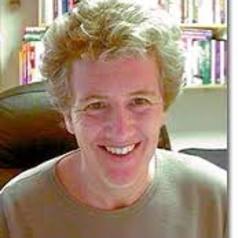
Pippa Norris
Pippa Norris is the McGuire Lecturer in Comparative Politics at the John F. Kennedy School of Government, Harvard University and ARC Laureate Fellow and Professor of Government and International Relations at the University of Sydney.
A political scientist and public speaker, her research compares election and public opinion, political communications, and gender politics. She also served as Director of the Democratic Governance Group in United Nations Development Programme, NY and as an expert consultant to many international organizations such as the World Bank, Council of Europe and OSCE.
In 2011 she was awarded the Johan Skytte prize with Professor Ronald Inglehart for contributing innovative ideas about the relevance and roots of political culture in a global context. This is among the most prestigious prizes relating to the field of political science. She was also awarded the Kathleen Kitzpatrick Australian Laureate Fellowship by the ARC, a 'special recognition' award by the UK Political Studies Association, and a Doctor honoris causa for work 'at the forefront of global political science' by the University of Edinburgh. In 2014 she was awarded IPSA's Karl Deutsch prize.
Her current research focuses upon the Electoral Integrity Project, a major new multi-million 5-year research study. The project research team is based at the Department of Government and International Relations at the University of Sydney. It has been generously supported by many agencies, including the Australian Research Council. Recent and forthcoming publications include Why Elections Fail (2015), Contentious Elections (2015), Why Electoral Integrity Matters (Cambridge University Press 2014), Advancing Electoral Integrity (co-edited, Oxford University Press, 2014), Comparing Democracies 4 (Sage, co-edited April 2014), and also an edited symposium on electoral integrity in Electoral Studies (Oct 2013).
Less ![]()
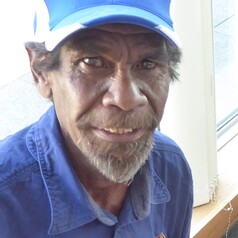
Pius Gregory
Yawuru Traditional Owner; Kimberley Biocultural Conservation Specialist at WWF-Australia's Broome office, Indigenous Knowledge
Pius is a Yawuru Traditional Owner, with many years of experience as country manager, looking after desert and sea country. He currently works for WWF as the Biocultural Conservation Specialist based in Broome.
Less ![]()
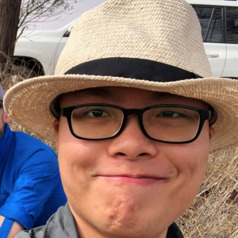
Pok Man Leung
Research Fellow in Microbiology, Monash University
I am a postdoctoral research fellow in Prof. Chris Greening lab in Department of Microbiology, Monash University. My primary interest is to understand how microorganisms in the environment survive under different conditions, and in turns modulate our environments and climate.
Less ![]()
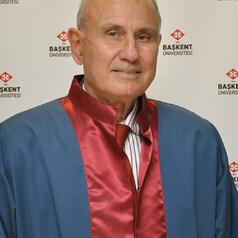
Polat Gulkan
Professor of Earthquake Structural Engineering, Başkent University
Polat Gulkan is Professor of Earthquake Structural Engineering, Başkent University
Ankara, Türkiye and a fellow of the U.S. National Academy of Engineering.
Less ![]()
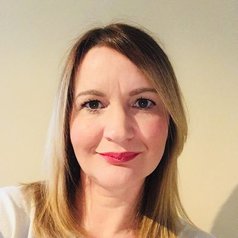
Polly Rippon
University Teacher in Journalism, University of Sheffield
I've been a journalist in the regional press for 20 years and I teach media law, regulation and court reporting at the University of Sheffield. My areas of interest are media law, court reporting, local newspaper industry. I have a degree in English Language and Linguistics and I am NCTJ-qualified.
Less ![]()
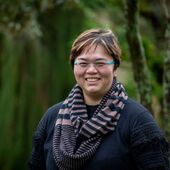


Poornika Ananth
Assistant Professor in Strategy and Organisations, School of Management, University of Bath
Less ![]()
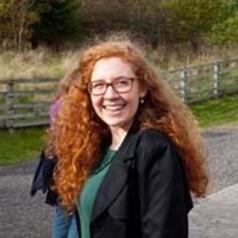
Poppy Cullen
Lecturer in International History, Loughborough University
Poppy is a historian of decolonisation and post-colonial relationships between Britain and Africa. She is interested in the transition from colonial to independent states in the 1960s and how organisations and individuals in a variety of fields – military, political, economic, humanitarian – adapted to this transition.
Her book 'Kenya and Britain after Independence Beyond Neo-Colonialism' focused on the political relationship between Britain and Kenya in the decades after independence, the 1960s to 1980s. She examined how political elites in both countries re-thought their relationships after Kenyan independence, and how the different forms of diplomacy practiced by the two states shaped the foreign policies they followed. She argued that British diplomats encouraged personalised rather than bureaucratic policy-making in Kenya. At the same time, they naturalised this kind of personalised politics, often termed neo-patrimonialism, as something inherently ‘African’. Poppy has published on various aspects of Anglo-Kenyan relations in a number of journals.
Her current research is focused on two areas. Firstly, military decolonisation and Africanisation in East Africa. Here, Poppy explores the precarious transformation of colonial armies intended to secure imperial rule to independent African militaries. Secondly, the history of humanitarianism and NGOs in Africa during the period of decolonisation. This includes work on ‘The Big Survey’ of NGOs carried out in the 1960s, and research into the Mau Mau Emergency.
Less ![]()
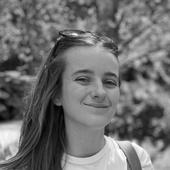
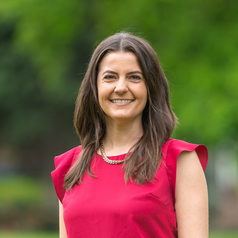
Portia Odell
System Lead - Cities, Climateworks Centre
Portia leads this team to reduce emissions within cities across the built environment, infrastructure and transport sectors across Australia and the Asia Pacific region.
Portia is a researcher and sustainability leader with a decade’s experience spanning academia, social enterprise, startups, and non-profit organisations. Portia was previously Director of the Cities Power Partnership, a program of the Climate Council and Australia’s largest network of over 185 local governments tackling climate change. In this role she spearheaded strategic research and advocacy initiatives to drive impactful change on climate policy for cities nationwide. Portia has also worked across a range of for-profit and not-for-profit organisations, helping small and medium sized enterprises to reduce their emissions. She has also worked in several start-up ventures, including co-founding a social enterprise.
Portia holds a PhD with the Curtin University Sustainability Policy (CUSP) Institute on school building decarbonisation and social impact, and a Bachelors’ degree in Environmental Science and Policy, with St. Edwards University in Austin, Texas.
Less ![]()
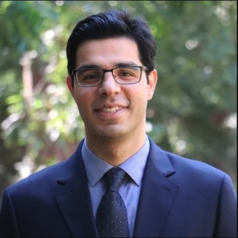
Pourya Valizadeh
Research Assistant Professor of Agricultural Economics, Texas A&M University
Pourya Valizadeh, Ph.D. is a research assistant professor in the Department of Agricultural Economics. His research interests lie in the economics of food policy, demand and price analysis, and applied econometrics tools for program evaluation and distributional analysis.
Valizadeh’s current research is primarily focused on evaluating the major US food and nutrition assistance programs. He is also conducting research to predict the relative effectiveness of alternative price-based food policies in improving U.S. households’ dietary quality and dietary choices. Prior to joining the faculty at Texas A&M University, he was a postdoctoral research associate at the University of North Carolina at Chapel Hill.
Less ![]()

Pouya Afshar
Associate Professor of Art & Design, UMass Lowell
Pouya Afshar is an alumnus from the California Institute of Arts Character Animation department and is a graduate of University of California Los Angeles Graduate Department of Film and Television focusing in Animation and Digital Media. He has exhibited his work as a visual artist throughout United States Europe, and Middle East, including Harold M. Williams Auditorium at the Getty Center, Bovard Auditorium at University of Southern California, Royce Hall at University of California Los Angeles, Los Angeles County Museum of Art, Santa Monica Art Studios, 18th street Art Center, Craft Contemporary Museum, and numerous galleries and art fairs around the world. Pouya has presented his research at Stanford University, Harvard University, University of Southern California, The School of Museum of Fine Arts Boston, University of California Los Angeles, and Residency Unlimited NY. He is the creator, character designer and producer of the animated series ‘Rostam in Wonderland’ and the co-creator of ‘1PA2PA’ comics and the creator of 'Tehran' graphic novel. He is currently an Associate Professor of Art and Design at University of Massachusetts, Lowell.
Less ![]()
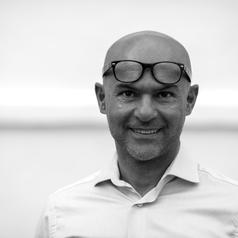
Pouya Movahed Rad
Researcher and Consultant, Psychiatry, Lund University
Pouya Movahed Rad's research began with a focus on the capsaicin receptor (the active compound in chili pepper) on sensory neurons, advancing our understanding of pain and inflammation by studying endogenous substances as ligands. He also investigated how garlic compounds interact with TRPA1 channels on sensory neurons, providing insights into the evolutionary strategies of plants affecting sensory pathways.
As a postdoctoral researcher, Movahed Rad led the Swedish multicenter study (KetECT), evaluating the effectiveness of electroconvulsive therapy (ECT) and IV ketamine for hospitalized patients with depression. This work, involving over 200 patients, garnered media and scientific attention, contributing to the development of new guidelines.
Moreover, Movahed Rad conducted research in pediatric psychiatry, focusing on the safety and efficacy of ECT in children and adolescents. His involvement in studies on ECT during pregnancy demonstrates his commitment to safe psychiatric treatment across all patient groups. He is now the national coordinating principal investigator for a psilocybin depression study, supported by Compass Pathway.
Seeking to advance psychiatry, Movahed Rad is pursuing funding for academically sponsored psilocybin research. His commitment to innovative psychiatric research and clinical work, particularly in treating challenging cases at the brain stimulation unit in Lund's psychiatric clinic, aims to enhance patient outcomes
Less ![]()
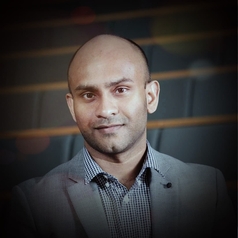
Prabash Edirisingha
Assitant Professor in Consumer Culture and Marketing, Northumbria University, Newcastle
Prabash joined Northumbria University in 2015 after completing his PhD from University of Otago, New Zealand. He has been in higher education since 2006 and have a truly international exposure by working in countries such as USA, Sri Lanka, and New Zealand.
Prabash is the programme leader for BA (Hons) Business with Marketing Management programme at the Newcastle Business School. He teaches in various undergraduate and postgraduate modules covering areas of consumer behaviour, marketing communications, and relationship marketing
He is a realist and a constructivist. He is interested in understanding the various ways in which people make sense of their lives through consumption. Primarily his research covers areas of consumer culture theory such as family identity and socio-cultural aspects of consumption. His current projects also expands into areas of tourism research that investigate health tourism and place-bonding and student experience and employability in higher education. Prabash is an interpretevist with expertise in ethnography and netnography. He also has expertise in host of other qualitative research methods such as semi-structured interview, observations, focus groups, and various elicitation methods.
Prabash takes immense pride in his teaching and public engagement activities. He is a traditionalist who believes education is a transformative experience coalesced with disciplinary understanding, character development, and personal maturity. Prabash is interested in supervising doctoral students in the areas of consumer behaviour and consumer culture theory.
Less ![]()

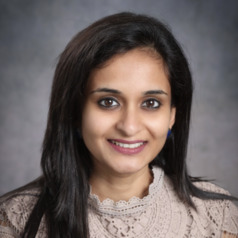
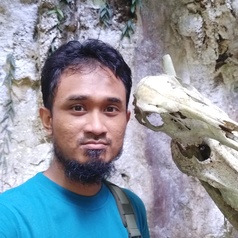
Pradiptajati Kusuma
Postdoctoral research fellow, Mochtar Riady Institute for Nanotechnology
I am a post-doctoral research fellow at the Mochtar Riady Institute for Nanotechnology, Tangerang, Indonesia, with research interests in human genetics, population genetics, and evolution.
Less ![]()
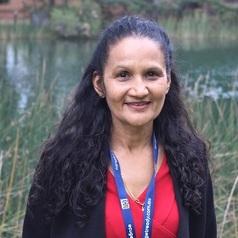
Prafula Pearce
Associate Professor of Law, Edith Cowan University
Dr Prafula Pearce is an Associate Professor in Law at Edith Cowan University, a member of the Research and Research Training Committee, and ECU Tax Clinic Coordinator in the School of Business and Law.
Key Research Areas: tax law, environmental law, socio-legal research.
Associate Professor Prafula Pearce has over 40 years of experience that includes academic and commercial:
Over 25 years of Academic and leadership experience in the law discipline at both Edith Cowan University School of Business and Law and Curtin Business School. She also obtained leadership experience, having served as Academic Discipline Lead and the Deputy Dean.
Over 15 years of commercial experience in London and Perth, having worked in large commercial organisations, such as Cadbury Schweppes London, Bond Corporation, and Deloitte in Perth.
Prafula’s qualifications in both law and accounting bring a unique perspective on commercial, legal, and taxation issues. She is a fellow of CPA Australia, the Chartered Association of Certified Accountants in England and Wales, Chartered Tax Adviser and has also attained the Bachelor of Laws, Master of Laws and a PhD.
Prafula’s research is mainly in the area of law, policy, and taxation. Since the attainment of her PhD in 2012, her research focus has been in the area of tax and regulatory measures to promote sustainable energy use. She has published widely in highly ranked national and international journals, made submissions to Federal Government inquiries to influence policies, and liaised with community and professional associations.
Prafula also has a wealth of supervision experience of PhD students in research areas that are of international importance and have the potential to make a difference in global policies and an impact on human lives and economic circumstances. She has been a member of various executive and research committees at Curtin University where she actively participated and advised on academic, management, and research issues.
Less ![]()
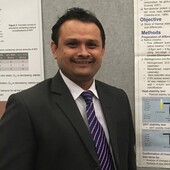
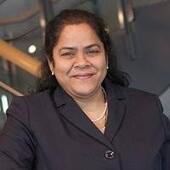

Prashant Kumar
Professor & Chair in Air Quality and Health; Founding Director, Global Centre for Clean Air Research (GCARE), Co-Director, Institute for Sustainability, University of Surrey, University of Surrey
Prashant is a founding Co-Director of the pan-university Institute for Sustainability (https://www.surrey.ac.uk/institute-sustainability), Founding Director of the Global Centre for Clean Air Research (GCARE; www.surrey.ac.uk/gcare) at the University of Surrey (UK). He is a Full Professor and Chair in Air Quality & Health, the founder of successfully running Guildford Living Lab (https://tinyurl.com/GuildfordLL), a Trustee at Zero Carbon Guildford (ZERO), an Adjunct Professor at Trinity College Dublin Ireland, and a Guest Professor at Southeast University China.
As an Associate Dean (International), he provided international leadership to the largest faculty. Earlier, he served as a Reader, Senior Lecturer and Lecturer. An engineer by training, he obtained his PhD (Engg) from the University of Cambridge (UK) after winning a Cambridge-Nehru Scholarship and Overseas Research Scholarship award, and earned his Master's Degree in Environmental Engineering & Management from the Indian Institute of Technology, Delhi, with CGPA 9.8/10 and rank 1.
Clarivate Analytics recognised him in the top 1% of the Global Highly Cited, Researchers, 2022. He was the winner of the University of Surrey's "Researcher of the Year Award" in 2017.
His fundamental and application-oriented cross-disciplinary research develops the interfaces of clean air engineering/science, human health and smart/sustainable living in cities/megacities. His current research projects are focused on multidisciplinary areas of air pollution monitoring/modelling, low-cost sensing, citizen science participation, nature-based solutions for climate change mitigation and the development of innovative technological and passive (e.g. green infrastructure) solutions, tools and guidance for both developing and developed world.
A prolific author with >300 articles in top-ranked journals, his research has attracted >16800 citations, h-index, 68; i10index, 239, secured £11M of individual research funding from >£30M projects, funded by the UKRI, EC, industry, charities & international funding bodies. Currently, he is a PI/Director of the £1.2M UKRI-funded RECLAIM Network Plus.
He has developed a network of collaborators across four continents and works closely with industrial partners. He is Editor-in-Chief of the air quality section of ‘Atmosphere’, founding Speciality Chief Editor of ‘Climate Change & Cities’ and serves editorial board of several journals (e.g. Scientific Reports).
He advises local/international bodies and serves as a board member of many funding agencies in the UK and worldwide. His research has featured in well-read media outlets such as the BBC and The Times.
Less ![]()
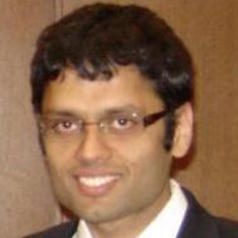
Prashant Nagpal
My research focuses on development of novel material systems and processes for development of functional nanomaterials. Our studies are focused on advancement of fundamental knowledge of electronic structures, carrier dynamics, and interactions between incident electromagnetic radiation and these nanoscale materials. Based on our understanding, we design and fabricate these nanostructured materials using a variety of top-down and bottom-up scalable nanofabrication techniques. We also employ a variety of spectroscopic methods including optical, electronic, ultrafast and other optoelectronic and surface sensitive spectroscopy techniques to study fundamental interaction between light, charge carriers and phonons in individual nanoparticles and mesoscale nanoparticle assemblies. This leads us to design principles for development of useful devices based on desired engineered nanoparticle properties and cooperative phenomenon in nanostructured assemblies.
Less ![]()
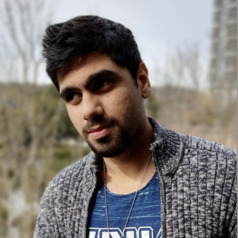
Pratik Raul
PhD candidiate, University of Canberra
I am a Phd Candidate in the university of canberra completing my thesis on the stochastic resonance (SR) phenomenon. I am currently in my last year and expected to complete my thesis in the next 5 months.
SR is a phenonmenon in which optimal amounts of noise can enahnce the detection of a weak stimulus. I am researching how noise in the autistic brain (neural noise) can lead to enahnced peroformance in some coginitve task. I am also studying how we can artifically use visual noise to enhance vision in people with age related macular degeneration or AMD which is the leading cause of blindness in older populations across many nations such as Australia and the USA. My AMD project with SR is also currently undergoing a patent process which further showcases the novelty of my projrect.
I was introduced to SR in my Psychology Honours year which I completed with a First class (7/7 GPA). I was also inducted in the Golden Key International Honour Society that year which is an orgianisaton that recognises high-achieving academics. I also run my own website https://neuropsyence.net where I and few other doctorate students write articles to spread scientific knowledge.
SR is a topic that I am very interested in and passionate about and I am hoping that I can share my knowledge through the Conversation.
Latest publication:
https://www.frontiersin.org/journals/neuroscience/articles/10.3389/fnins.2023.1110714/full?utm_source=F-NTF&utm_medium=EMLX&utm_campaign=PRD_FEOPS_20170000_ARTICLE
Less ![]()
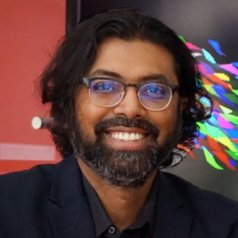
Pratim Sengupta
Professor, Learning Sciences and STEM Education, University of Calgary
Dr. Pratim Sengupta is a Professor of Learning Sciences and STEM education at the University of Calgary. He is a critical scholar of computing and STEM education. He has served as the Research Chair of STEM education at the University of Calgary, and received a CAREER Award from the US National Science Foundation for his research on integrating computational modelling in K-12 STEM classrooms.
Less ![]()
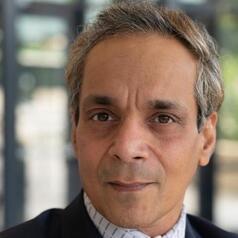
Pratim Milton Datta
Professor of Information Systems & Cybersecurity, Kent State University
Dr. Pratim Milton Datta is a Professor of Information Systems in the College of Business at Kent State University. He specializes in Cybersecurity, Digital Transformation, Corporate Analytics, and 4IR global ICT strategy.
Pratim also serves as a Senior Research Associate (4IR Visiting Researcher) with the University of Johannesburg, South Africa and a Visiting Researcher with ITU Copenhagen, Denmark.
He served as the PhD Director for the College of Business from 2012-2018. He also served as the College's AACSB accreditation Assurance of Learning (AoL) lead from 2010-2012.
Pratim received the Farris Family Research Innovation Award twice (2009, 2010). He was the 2014 University Scholar of the Month and received the University President's Faculty Excellence Award in 2017.
Ranked among the top 100 researchers internationally (https://drive.google.com/file/d/1UT9dC6LDPgumiNljKs9nFoBaITIcw_2G/view?usp=sharing), Pratim has more than 75 journal articles and conference proceedings with multiple best paper nominations and awards. He has published in journals such as EJIS, JAIS, ISJ, JKM, ACM, CAIS, JIT, CACM, and IEEE.
Pratim's textbook "Global Technology Management 4.0: Concepts and Cases for Managing in the 4th Industrial Revolution" is published by Palgrave Macmillan (https://link.springer.com/book/10.1007/978-3-030-96929-5).
Prior to academia, Pratim worked for global technology consulting firms. He actively consults, teaches, and presents his research internationally.
With multiple sole-inventions and patent applications, Pratim enjoys designing engineering and technological solutions. His E-Voting process invention was featured on FOX8 news in April-May 2013. He has been cited in various business media. He is an avid traveller and photographer.
Less ![]()
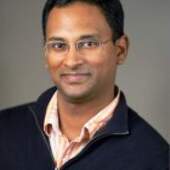

Precious Matsoso
Academic and treaty negotiator, University of the Witwatersrand
Precious Matsoso is the former director-general of the South African National Department of Health. She was the World Health Organisation director of public health innovation and intellectual property. She was the head of the medicines regulatory authority of South Africa for six years. She has served on various advisory bodies both nationally and internationally and was chair of the WHO executive board. She served as a member of the UN High-Level Panel on Access to Health Technologies, and chairperson of the Independent Oversight and Advisory Committee for the WHO Health Emergencies Programme.
She was a member of the Lancet Global Health Commission on High Quality Health Systems, co-chair of the WHO Digital Health Advisory Group and a member of the Independent Panel for Pandemic Preparedness and Response. She is currently the director of the Health Regulatory Science Platform, a division of the Wits Health Consortium, and an honorary lecturer in the Department of Pharmacy and Pharmacology, University of the Witwatersrand. She is the co-chair of the Intergovernmental Negotiating Body for the development of a legal instrument, a Pandemic Convention, or Treaty. She is appointed adjunct professor at Sunway University, Malaysia.
Less ![]()
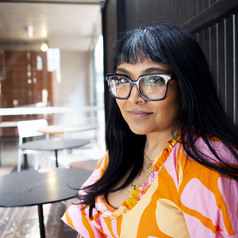
Preeti Maharaj
PhD candidate, education and identity, Victoria University
Preeti is researching how teachers navigate their identities, institutional identities and students’ identities when engaging with anti-racist policies and practices in schools. This is borne out of the intersections of her lived experiences as a migrant Woman of Colour, a teacher and school leader of two decades.
She works as an educational, school policy and curriculum consultant.
Her short story 'A Tangle of Tenses' will be published in 'Growing Up Indian in Australia' in July 2024.
Preeti is also a playwright, an actor and producer. Her ten minute, one woman play 'Ganna Ki Kethi' (Sugarcane Farming) set in a remote part of Fiji, was awarded 'Best Production' by the judges in the West of Melbourne Performing Arts Festival 2024.
Photo credit: Jess D'Cruze
Less ![]()
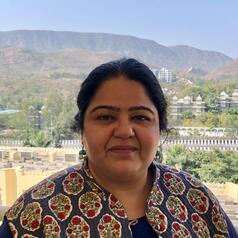
Preety Sharma
Fellow, Dalla Lana Journalism and Health Impact, University of Toronto
Preety Sharma works as an independent consultant in the area in public health and development. She is trained in Nutrition, Management and Public Health. She is a freelance journalist and Fellow of the Journalism and Health Impact Fellowship 2024 at the University of Toronto.
Less ![]()
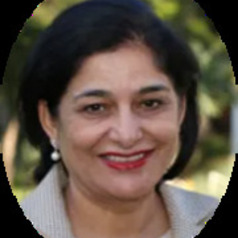
Prem Bhalla
Professor of Crop Biotechnology, The University of Melbourne
Professor Bhalla is a plant biotechnologist with an international reputation in plant reproduction, plant development biology, genetic engineering and tissue culture of crop plants. Her research has focused on discovering new knowledge that has strategic applications. She developed world’s first hypoallergenic grass and led to the discovery of a genetic ‘switch’ that can be turned on or off to alter the development of male gametic cells in plants bringing the understanding of plant reproduction to a whole new level.
Less ![]()
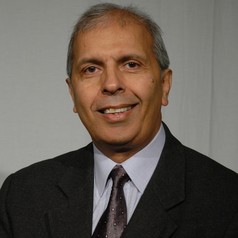
Prem Sikka
Prem Sikka is Professor of Accounting at the University of Essex. His research on accountancy, auditing, corporate governance, money laundering, insolvency and business affairs has been published in books, international journals, newspapers and magazines. He has also appeared on radio and television programmes to comment on accountancy and business matters.
Less ![]()
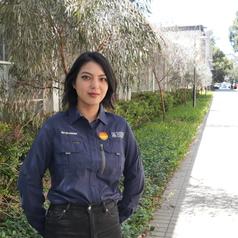
Prema Arasu
Postdoctoral research fellow, The University of Western Australia
Prema Arasu is a postdoctoral research fellow at the Minderoo-UWA Deep-Sea Research Centre. They are a writer and poet interested in the phenomenology of the deep sea. They have an MLitt in Modern and Contemporary Literature and Culture, and have a PhD in Creative Writing from UWA.
Prema is interested in how speculative fiction and experimental forms might provide us with new ways of talking about and conceptualising the oceans, particularly in the context of the Anthropocene. Their approach is interdisciplinary; integrating the methodologies of literary studies, creative arts, environmental humanities, philosophy, and science communication.
Less ![]()
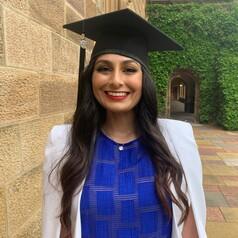
Premeet Sidhu
PhD Student in Media and Communications, University of Sydney
Premeet Sidhu is a PhD student at The University of Sydney. Her PhD focuses on understanding the modern resurgence and appeal of the tabletop role-playing game Dungeons & Dragons [D&D]. Her current research interests include investigating how meaningful player experiences in both digital and non-digital games can be applied and considered in wider areas of game studies, education, and media.
Less ![]()
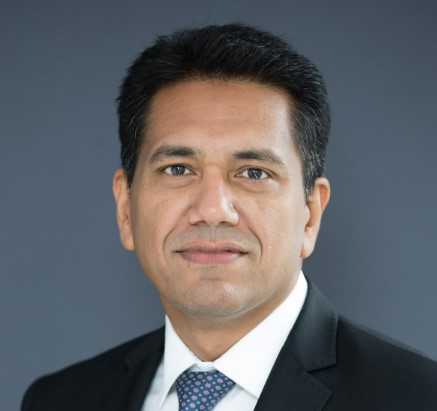
Premeshin Naidoo
Head of Middle East & Asia Corridor - Absa Corporate and Investment Bank
Premeshin Naidoo is Managing Director for the Middle East & Asia Corridor at Absa Group Limited, responsible for the strategy to originate and execute corporate and investment banking solutions for multinational clients across the Middle East and Asia region looking to trade or invest in Africa.
Premeshin has over 20 years of experience in corporate and investment banking focused primarily on the mining and telecoms sectors. He spent 7 years as the Sector Head of TMT for Absa CIB before taking on his current role in January 2020. Prior to Absa, he spent 6 years as the Head of Mining and Telecoms for Citi Bank where he worked on a number of landmark capital raising transactions across Africa.
Prior to his career in banking, Premeshin worked as a Civil Engineer specializing in hydraulics and hydrology, and remains registered as a Professional Engineer. He has further completed a Bachelor of Commerce (Honours) as well as a Master of Science in Finance (University of London). In addition, he has attended executive programmes at Kellogg School of Management (Chicago) and Rotterdam School of Management
Less ![]()
- Market Data





















